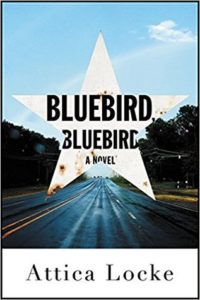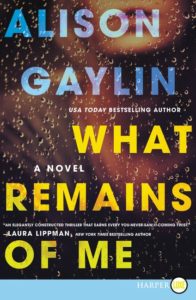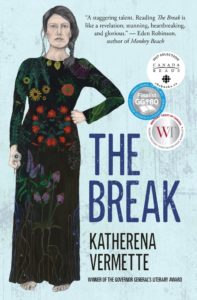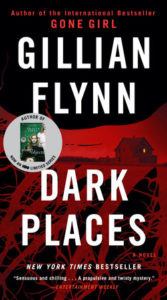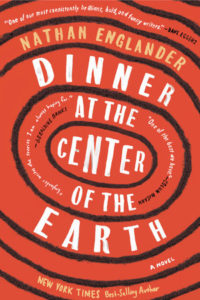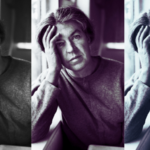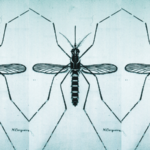Reading fiction is supposed to increase your capacity for empathy, they say. I think they’re right, whoever they are. I developed a love for reading early on in my life and have not regretted a second that I’ve spent holed away somewhere, buried in the pages of a book. Fiction has taught me about other people’s lives and struggles in a way that my own life experience could not. Crime fiction perhaps does this best, simply because it explores the grey areas of what it means to be a human being by dragging us down into the darkness.
It forces us to consider the struggles of people who aren’t perfect—and particularly good crime fiction leaves us feeling empathy for them. It’s easy to love the starry-eyed dreamers, but what should you feel about the criminals of this world? This, perhaps, is a job best suited to crime writer. The best of them make you feel empathy for the most unlikeable people by showing their humanity.
These are the crime novels that have taught me empathy:
Bluebird, Bluebird, by Attica Locke
This is a beautiful novel, set in an American town that used to be a plantation. It’s a difficult place, with simmering racial tensions. Darren Matthews, a black Texas Ranger, navigates treacherous territory as he investigates two deaths, one of a black man and the other a white woman. Locke’s vivid writing exposes the scars of this small town and America’s own painful past.
What Remains Of Me, by Alison Gaylin
Gaylin’s novel is about a woman who was convicted for a high profile murder that occurred when she was a teenager. Now that she’s out, she is drawn into another murder investigation that mimics the killing she was convicted for. It’s difficult to feel for a woman so cold, for a convicted criminal, but this book masterfully draws you in and paints a portrait of a complicated, tragic heroine. By the end, you realize perhaps it doesn’t matter that she’s a murderess. Perhaps she was even justified.
Invisible Dead, by Sam Wiebe
Invisible Dead is inspired by the case of a real-life serial killer who preyed on Vancouver’s destitute women for years before being caught. Wiebe delves into the dark side of Vancouver’s social, political and economic climate to great effect. Not only is this a superb detective story, it paints a deeply heartfelt portrait of what life is like for the city’s vulnerable.
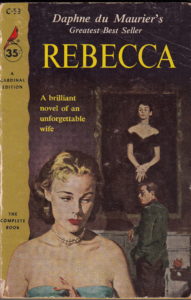
Rebecca, by Daphne Du Maurier
I love this book for many reasons, but chief among them is how it introduces an insipid young woman who marries a wealthy widower and becomes drawn into his deceased wife’s tangled web. Rebecca’s ghost is still alive, and the reader can’t help but feel deeply for everyone who’d been hurt and manipulated by her—especially the new wife who is made to believe she can never step out of Rebecca’s shadow. I started off disliking the narrator immensely and ended up rooting for her happiness.
A Negro and an Ofay, by Danny Gardner
I was all noir-ed out last year but Danny Gardner’s debut novel resuscitated the genre for me. His main character Elliot Caprice is a troubled police officer you can’t help but love. He’s not perfect, but his journey is intricately plotted and compelling. A Negro and an Ofay looks at race, class, wealth and power in 1950s Chicago without ever dropping the emotional core of the novel.
The Break, by Katherena Vermette
I just had to sneak this in here because this is the book that broke my heart last year. It’s not strictly crime fiction but it is about crime. When a girl is brutally assaulted in Winnipeg, a community struggles to understand what prompted the attack. The narrative shifts from various point of views from the families involved to the police officer working the case. This novel cuts, and makes you bleed for everyone involved.
Dare Me, by Megan Abbott
Oh, teenaged girls. Nobody writes them with more delicious, dark humanity than Megan Abbott. Dare Me takes us into the minds of these little sociopaths, lets us walk in their miniskirts, twirl their batons and gives us a glimpse of what their lives are like, as a murder tears a cheerleading squad apart. There’s nothing particularly redeeming about these teenagers but that doesn’t matter because, through Abbott’s insightful writing, we begin to understand them—and feel for them, too.
Dark Places, by Gillian Flynn
This is my favorite Gillian Flynn novel, primarily because the main character Libby is such a trip. She shamelessly profits off her family’s tragic history and the fact that she’s the lone survivor of a massacre. But this is her redeeming quality, as well. She did survive a massacre. Her family circumstances are so tragic that by the end of this book the reader may not understand her, but we feel her pain. A troubled heroine, yes, but a very human one.
Dinner At The Center of the Earth, by Nathan Englander
It’s hard to write about the Israel-Palestine conflict because there’s just so much to despair over. Englander’s darkly hilarious thriller may not work for some, but I loved the scope of it. It clearly comes from a place of deep emotion for him as an author. It’s impossible not to empathize with the characters caught up in such fraught circumstances.


